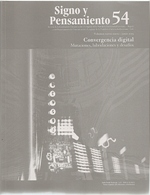Abstract
Book review: Gerbault, Jeannine (éds.). 2007. La langue du cyberespace : de la diversité aux normes. Paris : L’Harmattan. ISBN : 978-2-296-04622-1.
Today, communication through language takes place in a new place, cyberspace. New communication tools are emerging, new language practices are appearing and covering multiple realities. Email, forums, blogs or sms become common modes of communication. Communication mediated by information and communication technologies (CMT) includes, in addition to the computer, other tools, especially those that rely on the mobile phone.
The changes brought about by these "new technologies" have transformed the panorama for all the actors of the communication. Indeed, the content continues to be conveyed by the language beyond the tools and devices deployed, and the cmt gives rise to linguistic and social changes that can not escape us, raising new questions; these changes have changed the areas of research of language specialists as well as those of communication specialists.
This journal is registered under a Creative Commons Attribution 4.0 International Public License. Thus, this work may be reproduced, distributed, and publicly shared in digital format, as long as the names of the authors and Pontificia Universidad Javeriana are acknowledged. Others are allowed to quote, adapt, transform, auto-archive, republish, and create based on this material, for any purpose (even commercial ones), provided the authorship is duly acknowledged, a link to the original work is provided, and it is specified if changes have been made. Pontificia Universidad Javeriana does not hold the rights of published works and the authors are solely responsible for the contents of their works; they keep the moral, intellectual, privacy, and publicity rights.
Approving the intervention of the work (review, copy-editing, translation, layout) and the following outreach, are granted through an use license and not through an assignment of rights. This means the journal and Pontificia Universidad Javeriana cannot be held responsible for any ethical malpractice by the authors. As a consequence of the protection granted by the use license, the journal is not required to publish recantations or modify information already published, unless the errata stems from the editorial management process. Publishing contents in this journal does not generate royalties for contributors.


